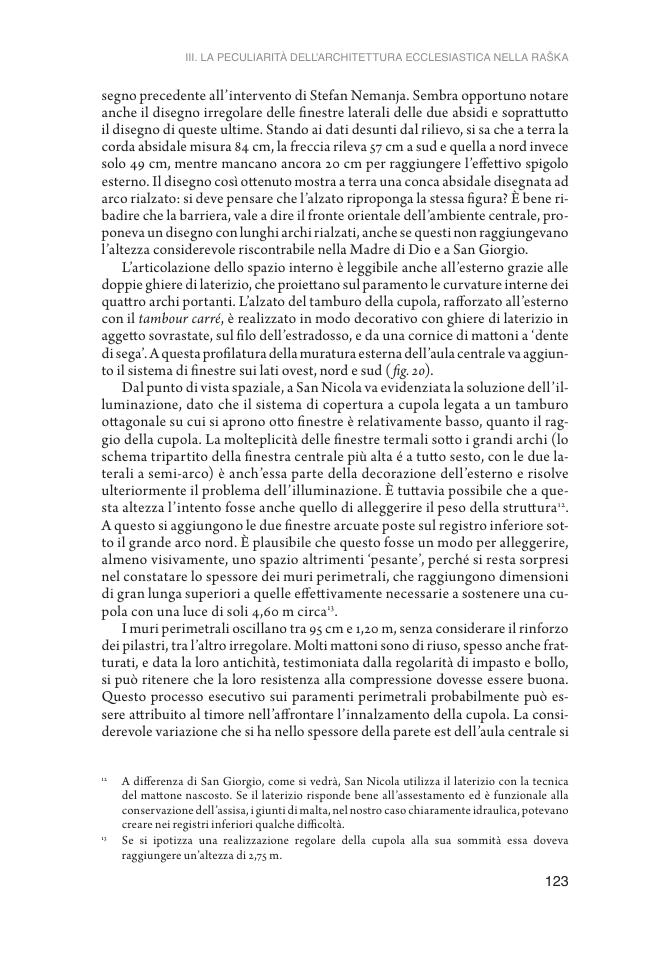I Balcani occidentali tra romanico e bizantino : tradizione e sperimentazione nell'architettura serba della seconda metà del XII secolo
243 p. : ill.
Includes bibliographical references (p. 214-238).
This volume focuses on the ecclesiastical architecture of 12th-century Nemaniad origins (Mother of God, Saint Nicholas and Saint George) by examining the layout preferences of the client and the workforce of diverse cultural backgrounds. The author discusses the monuments' construction techniques as a primary instrument for shaping space by taking into consideration the visual effects of the domed space of Romanesque architecture as diametrically opposed to architectural elements present in the Byzantine world.
The analysis of the different construction phases of the churches considered is carried out based on archival documents, on a survey carried out in the field, and a reconstruction of their realities within a historical context. What emerges in this analysis is that a regional architecture's selection choices for construction should not be understood as an either-or scenario between Byzantium and the West, but rather as the result of a synthesis of different local architectural traditions that comes to fruition in Medieval Serbia. [Publisher's text]
Questo volume affronta il tema dell'architettura ecclesiastica delle fondazioni nemanidi del XII secolo (Madre di Dio, San Nicola, San Giorgio) studiando le scelte progettuali della committenza e di maestranze di differente provenienza culturale. Le tecniche costruttive dei monumenti sono viste come strumento capace di plasmare lo spazio, tenendo presente che l'effetto visuale dello spazio cupolato nel mondo romanico è diametralmente opposto rispetto a quello presente nel mondo bizantino. Per realizzare questa ricerca sono state analizzate le diverse fasi costruttive di alcune chiese sulla base di documenti d'archivio e sui rilievi effettuati sul campo, tenendo conto del contesto storico. Ne emerge in conclusione che le manifestazioni costruttive di questa architettura regionale non vanno intese come una contrapposizione fra Bisanzio e l'Occidente, ma rappresentano piuttosto la sintesi originale di diverse tradizioni architettoniche affermatasi nella Serbia medievale. [Testo dell'editore]
-
Informazioni
ISBN: 9788855182126
COLLANA
MATERIE



